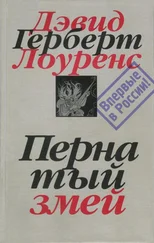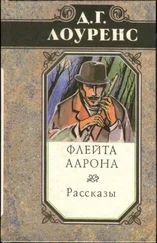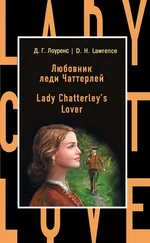Дэвид Лоуренс - Sons and Lovers
Здесь есть возможность читать онлайн «Дэвид Лоуренс - Sons and Lovers» весь текст электронной книги совершенно бесплатно (целиком полную версию без сокращений). В некоторых случаях можно слушать аудио, скачать через торрент в формате fb2 и присутствует краткое содержание. Жанр: Старинная литература, на английском языке. Описание произведения, (предисловие) а так же отзывы посетителей доступны на портале библиотеки ЛибКат.
- Название:Sons and Lovers
- Автор:
- Жанр:
- Год:неизвестен
- ISBN:нет данных
- Рейтинг книги:3 / 5. Голосов: 1
-
Избранное:Добавить в избранное
- Отзывы:
-
Ваша оценка:
- 60
- 1
- 2
- 3
- 4
- 5
Sons and Lovers: краткое содержание, описание и аннотация
Предлагаем к чтению аннотацию, описание, краткое содержание или предисловие (зависит от того, что написал сам автор книги «Sons and Lovers»). Если вы не нашли необходимую информацию о книге — напишите в комментариях, мы постараемся отыскать её.
Sons and Lovers — читать онлайн бесплатно полную книгу (весь текст) целиком
Ниже представлен текст книги, разбитый по страницам. Система сохранения места последней прочитанной страницы, позволяет с удобством читать онлайн бесплатно книгу «Sons and Lovers», без необходимости каждый раз заново искать на чём Вы остановились. Поставьте закладку, и сможете в любой момент перейти на страницу, на которой закончили чтение.
Интервал:
Закладка:
“Why?”
“Because I didn’t want to go on with her. And I didn’t want to marry.”
She was silent for a moment. They picked their way down the muddy path. Drops of water fell from the elm-trees.
“You didn’t want to marry Miriam, or you didn’t want to marry at all?” she asked.
“Both,” he answered—“both!”
They had to manoeuvre to get to the stile, because of the pools of water.
“And what did she say?” Clara asked.
“Miriam? She said I was a baby of four, and that I always had battled her off.”
Clara pondered over this for a time.
“But you have really been going with her for some time?” she asked.
“Yes.”
“And now you don’t want any more of her?”
“No. I know it’s no good.”
She pondered again.
“Don’t you think you’ve treated her rather badly?” she asked.
“Yes; I ought to have dropped it years back. But it would have been no good going on. Two wrongs don’t make a right.”
“How old are you?” Clara asked.
“Twenty-five.”
“And I am thirty,” she said.
“I know you are.”
“I shall be thirty-one-or am I thirty-one?”
“I neither know nor care. What does it matter!”
They were at the entrance to the Grove. The wet, red track, already sticky with fallen leaves, went up the steep bank between the grass. On either side stood the elm-trees like pillars along a great aisle, arching over and making high up a roof from which the dead leaves fell. All was empty and silent and wet. She stood on top of the stile, and he held both her hands. Laughing, she looked down into his eyes. Then she leaped. Her breast came against his; he held her, and covered her face with kisses.
They went on up the slippery, steep red path. Presently she released his hand and put it round her waist.
“You press the vein in my arm, holding it so tightly,” she said.
They walked along. His finger tips felt the rocking of her breast. All was silent and deserted. On the left the red wet plough-land showed through the doorways between the elm-boles and their branches. On the right, looking down, they could see the tree-tops of elms growing far beneath them, hear occasionally the gurgle of the river. Sometimes there below they caught glimpses of the full, soft-sliding Trent, and of water-meadows dotted with small cattle.
“It has scarcely altered since little Kirke White used to come,” he said. 1
But he was watching her throat below the ear, where the flush was fusing into the honey-white, and her mouth that pouted disconsolate. She stirred against him as she walked, and his body was like a taut string.
Half-way up the big colonnade of elms, where the Grove rose highest above the river, their forward movement faltered to an end. He led her across to the grass, under the trees at the edge of the path. The cliff of red earth sloped swiftly down, through trees and bushes, to the river that glimmered and was dark between the foliage. The far-below water-meadows were very green. He and she stood leaning against one another, silent, afraid, their bodies touching all along. There came a quick gurgle from the river below.
“Why,” he asked at length, “did you hate Baxter Dawes?”
She turned to him with a splendid movement. Her mouth was offered him, and her throat; her eyes were half-shut; her breast was tilted as if it asked for him. He flashed with a small laugh, shut his eyes, and met her in a long, whole kiss. Her mouth fused with his; their bodies were sealed and annealed. It was some minutes before they withdrew. They were standing beside the public path.
“Will you go down to the river?” he asked.
She looked at him, leaving herself in his hands. He went over the brim of the declivity and began to climb down.
“It is slippery,” he said.
“Never mind,” she replied.
The red clay went down almost sheer. He slid, went from one tuft of grass to the next, hanging on to the bushes, making for a little platform at the foot of a tree. There he waited for her, laughing with excitement. Her shoes were clogged with red earth. It was hard for her. He frowned. At last he caught her hand, and she stood beside him. The cliff rose above them and fell away below. Her colour was up, her eyes flashed. He looked at the big drop below them.
“It’s risky,” he said; “or messy, at any rate. Shall we go back?”
“Not for my sake,” she said quickly.
“All right. You see, I can’t help you; I should only hinder. Give me that little parcel and your gloves. Your poor shoes!”
They stood perched on the face of the declivity, under the trees.
“Well, I’ll go again,” he said.
Away he went, slipping, staggering, sliding to the next tree, into which he fell with a slam that nearly shook the breath out of him. She came after cautiously, hanging on to the twigs and grasses. So they descended, stage by stage, to the river’s brink. There, to his disgust, the flood had eaten away the path, and the red decline ran straight into the water. He dug in his heels and brought himself up violently. The string of the parcel broke with a snap; the brown parcel bounded down, leaped into the water, and sailed smoothly away. He hung on to his tree.
“Well, I’ll be damned!” he cried crossly. Then he laughed. She was coming perilously down.
“Mind!” he warned her. He stood with his back to the tree, waiting. “Come now,” he called, opening his arms.
She let herself run. He caught her, and together they stood watching the dark water scoop at the raw edge of the bank. The parcel had sailed out of sight.
“It doesn’t matter,” she said.
He held her close and kissed her. There was only room for their four feet.
“It’s a swindle!” he said. “But there’s a rut where a man has been, so if we go on I guess we shall find the path again.”
The river slid and twined its great volume. On the other bank cattle were feeding on the desolate flats. The cliff rose high above Paul and Clara on their right hand. They stood against the tree in the watery silence.
“Let us try going forward,” he said; and they struggled in the red clay along the groove a man’s nailed boots had made. They were hot and flushed. Their barkled shoes hung heavy on their steps. At last they found the broken path. It was littered with rubble from the water, but at any rate it was easier. They cleaned their boots with twigs. His heart was beating thick and fast.
Suddenly, coming on to the little level, he saw two figures of men standing silent at the water’s edge. His heart leaped. They were fishing. He turned and put his hand up warningly to Clara. She hesitated, buttoned her coat. The two went on together.
The fishermen turned curiously to watch the two intruders on their privacy and solitude. They had had a fire, but it was nearly out. All kept perfectly still. The men turned again to their fishing, stood over the grey glinting river like statues. Clara went with bowed head, flushing; he was laughing to himself Directly they passed out of sight behind the willows.
“Now they ought to be drowned,” said Paul softly.
Clara did not answer. They toiled forward along a tiny path on the river’s lip. Suddenly it vanished. The bank was sheer red solid clay in front of them, sloping straight into the river. He stood and cursed beneath his breath, setting his teeth.
“It’s impossible!” said Clara.
He stood erect, looking round. Just ahead were two islets in the stream, covered with osiers. fhBut they were unattainable. The cliff came down like a sloping wall from far above their heads. Behind, not far back, were the fishermen. Across the river the distant cattle fed silently in the desolate afternoon. He cursed again deeply under his breath. He gazed up the great steep bank. Was there no hope but to scale back to the public path?
Читать дальшеИнтервал:
Закладка:
Похожие книги на «Sons and Lovers»
Представляем Вашему вниманию похожие книги на «Sons and Lovers» списком для выбора. Мы отобрали схожую по названию и смыслу литературу в надежде предоставить читателям больше вариантов отыскать новые, интересные, ещё непрочитанные произведения.
Обсуждение, отзывы о книге «Sons and Lovers» и просто собственные мнения читателей. Оставьте ваши комментарии, напишите, что Вы думаете о произведении, его смысле или главных героях. Укажите что конкретно понравилось, а что нет, и почему Вы так считаете.









